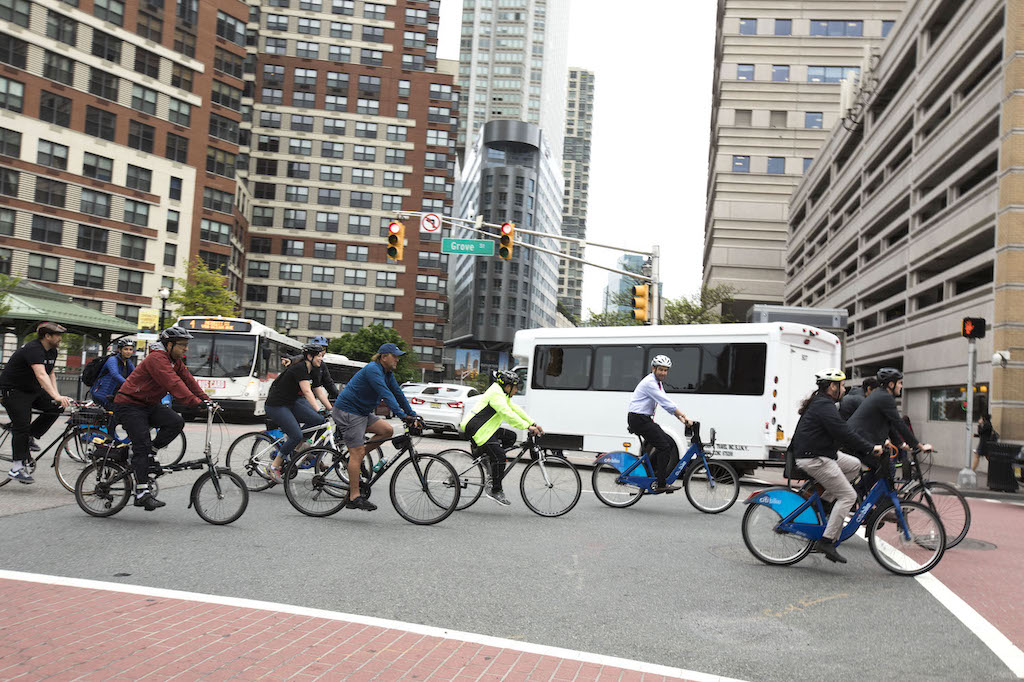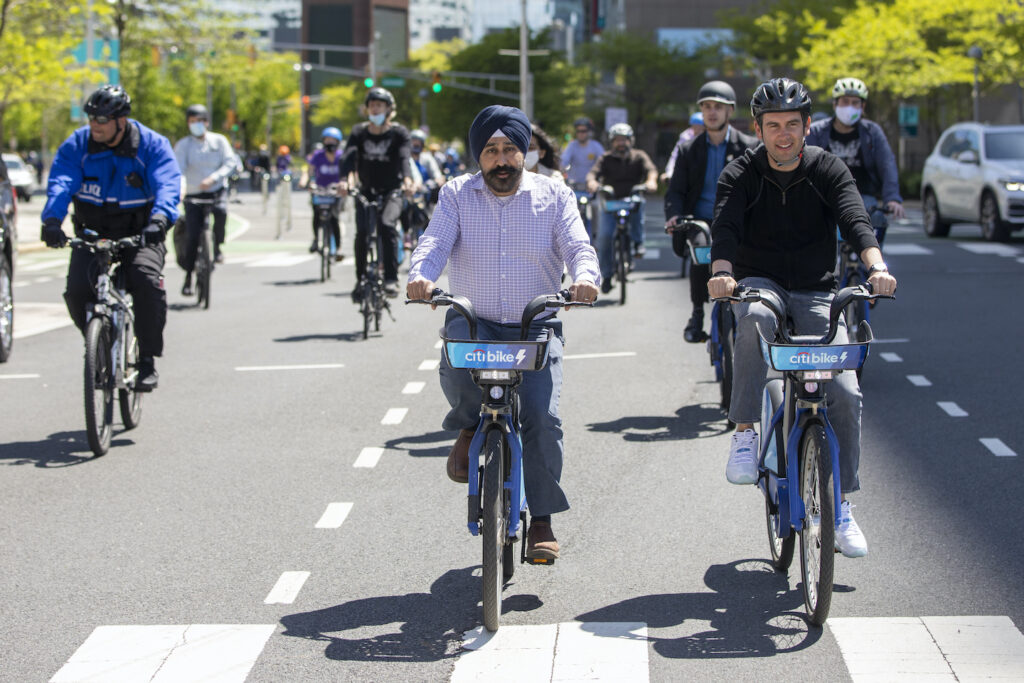
• Flip Book• eNews • eBikes • eAccessories • eCities • eSystems • eAdventures • eBikeTests • eFeatures •

• Flip Book• eNews • eBikes • eAccessories • eCities • eSystems • eAdventures • eBikeTests • eFeatures •
October 29, 2024 - Jersey City, the second-most populous city in the state of New Jersey, developed its Let’s Ride JC Bicycle Master Plan back in 2019. The plan was created in hopes of quadrupling cycling by 2025 and implementing bikeways on more than 50% of the city’s street network.

Mayor Steven Fulop is bullish on biking, and since coming into power in 2013 over 100 miles of dedicated facilities for cycling have been installed. This expansion has led to more than 26 miles of protected bike lanes and over 33 miles of buffered bike lanes.
Cycling has seen a 111% increase since 2020, with a 61% increase in Citi Bike ridership across the system.
Jersey City’s overall active transportation mode share is high, with 50% of all intracity trips on foot and an additional 8% using public transportation.
The Bicycle Master Plan goal is to increase cycling mode share by 400% by 2026, and the city has set an overall goal to exceed 3% cycling mode share citywide.
Citi Bike share, launched in 2015 with 53 stations citywide, successfully integrated e-bikes into the Jersey City fleet in 2021, with a significant increase in e-bike ridership since then.
Over 154,000 e-bike rides were recorded in the second quarter of 2024, a 5% increase from the first quarter, and e-bikes accounted for nearly 54% of the total rides in Q2 2024.
In 2022, Jersey City made history by launching the nation’s first comprehensive municipal secure bicycle parking and charging network in partnership with Oonee, based in Brooklyn, NY.
The first phase has been installed and consists of two high-capacity pods (24 bikes each), three 10-bike docks, and a mini unit that parks six bikes.
There are plans to expand the system to include 30 facilities across the city, servicing nearly 300,000 people.
Jersey City installs approximately 50 individual bike racks annually to support on-street bike parking, with nearly 700 public on-street bike racks currently installed.
As a baseline, the City dedicates approximately $5 million annually to road safety improvements, including bike infrastructure, protected bike lanes, bike parking, and $400,000 annually to subsidize the Citi Bike program.
Additionally, the City manages a number of federal and state grant-funded corridor safety projects valued at over $10 million that include safe cycling facilities.
Jersey City since became the first municipality in New Jersey to adopt Vision Zero five years ago with a goal to decrease cycling fatalities and serious injuries to zero by 2026.